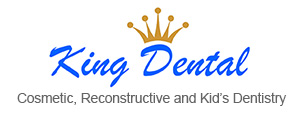Call: (714) 774-2500
FAQ

Below you will find some of the most frequently asked questions patients have regarding dentistry and oral health issues.
Click on a question below to see the answer. If you have other questions not listed here or would like to schedule an appointment, please contact us. We would love to hear from you.
Q. How to choose the best dentist?
A. With so many options, it can feel daunting to find the best dentist for you and your family. You can narrow it down by asking questions about office location and hours, payment plans and insurance, and what types of amenities are available to make patients feel more comfortable. It is also important to inquire about the dentist’s education, training and specialties. For example you may need a dentist that specializes in orthodontics, tooth extraction or gum disease. Ultimately the best dentist is the one that makes you feel comfortable and offers the dental services you need.
Q. How safe are dental X-rays?
A. Exposure to all sources of radiation -- including the sun, the soil, appliances in your home, and dental X-rays -- can damage the body's tissues and cells and lead to the development of cancer. Fortunately, the dose of radiation you are exposed to during the taking of X-rays is extremely small.
Advances in dentistry over the years have led to the low radiation levels emitted by dental X-rays. Some of the improvements are new digital X-ray machines that limit the low dose radiation beam to the small area being X-rayed. Also, the use of lead-lined, full-body aprons protects the body from stray radiation (though this is almost nonexistent with the modern dental X-ray machines.) At King Dental, we employ digital X-rays to make sure that you have minimal exposure to X-rays as possible.
Q. How can I improve the whiteness of my teeth?
A. Most people start out with bright white teeth, but over time they can dull and yellow due to certain foods, beverages, tobacco and even some medications. If your teeth are not as white as you’d like them to be, you can try over-the-counter whitening products. It is also wise to limit the things that cause the discoloration. If over-the-counter products do not produce the results you are hoping for, talk to your dentist about professional, in-office whitening sessions.
Q. Where can I find affordable dental care?
A. It is risky to go without dental insurance, although so many Americans do without it due to coverage restraints or budgetary limitations. Open a discussion with your dentist to see if a payment arrangement can be worked out for your situation. There are resources available in the State of California to help!
Q. At what age should my child first see a dentist?
A. Your child should be seen by the dentist as early as the first tooth appears in his/her mouth. The dentist can show you how to take care your child's teeth. What are the do and don't for your child regard to his/her dental health. It is very important to take care of your child's teeth as early as possible.
Q. What is a 'missing tooth clause'?
A. A majority of dental insurance plans have a missing tooth clause that stipulates that they will not pay for a procedure that replaces a missing tooth prior to the effective date of when the insurance coverage came into effect.
A. This procedure involves the removal of the nerve inside a tooth. When a nerve dies it needs to be removed from inside the tooth to treat infection and as preventative maintenance. A filling material is then filled the root and tooth. Also, the crown is sometime necessary to protect the root-canal treated tooth from fracture.
Q. How often should x-rays be taken?
A. X-rays should be taken yearly however some patients will require it be done more frequently for a host of reasons including treatment, nutrition, hygiene and other health issues.
A. Implant dentistry is a popular option for replacing a missing tooth. Rather than resting on the gum line like removable dentures or using adjacent teeth as anchors like a dental bridge, dental implants are surgically placed into the jawbone where they act as an anchor for replacement teeth. A dental implant looks and feels like a natural tooth, allowing you to chew and speak just like you did before.
Q. Which toothpaste should I use?
A. You should use toothpaste with fluoride and the least amount of chemicals. It is not so important what kind of toothpaste you use; it is how you brush your teeth.
A. After you have a tooth pulled or extracted, your blood will clot in the hole to protect your bone tissue and aid in healing. If the clot doesn't form properly, your bone tissue can be exposed to air and debris which will cause it to dry out and form a 'dry socket'. This very painful socket needs to be treated immediately to prevent further complications.
Q. How can I relieve a toothache?
A. Just ask anyone who's ever had prolonged pain in one or more teeth and they'll tell you that toothaches are no fun. Toothaches can cause discomfort that may range from a minor ache to severe pain.
If you've got one, it's easy to understand why you'd be looking for toothache home remedies. While toothache home remedies may temporarily ease discomfort, the only way to get lasting toothache relief is to see a dentist.
Don't let fear keep you from seeking out toothache remedies; a gentle dentist can treat toothaches while you stay comfortable and relaxed. We know it can be scary, but finding toothache relief will get you back on the road to dental health!
Many people, unfortunately, experience a toothache in the late evening or early morning when the dentist's office is not open. It has been said that you can relieve some discomfort by placing clove oil, using a cotton swab, on the tooth which acts as a natural sedative for the throbbing nerve inside of your tooth.
